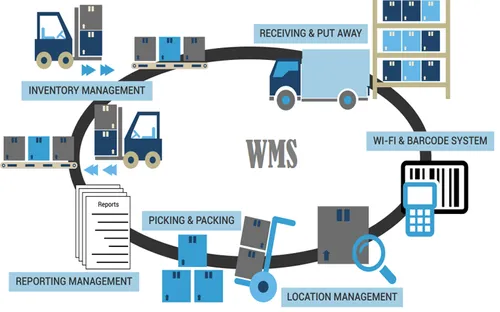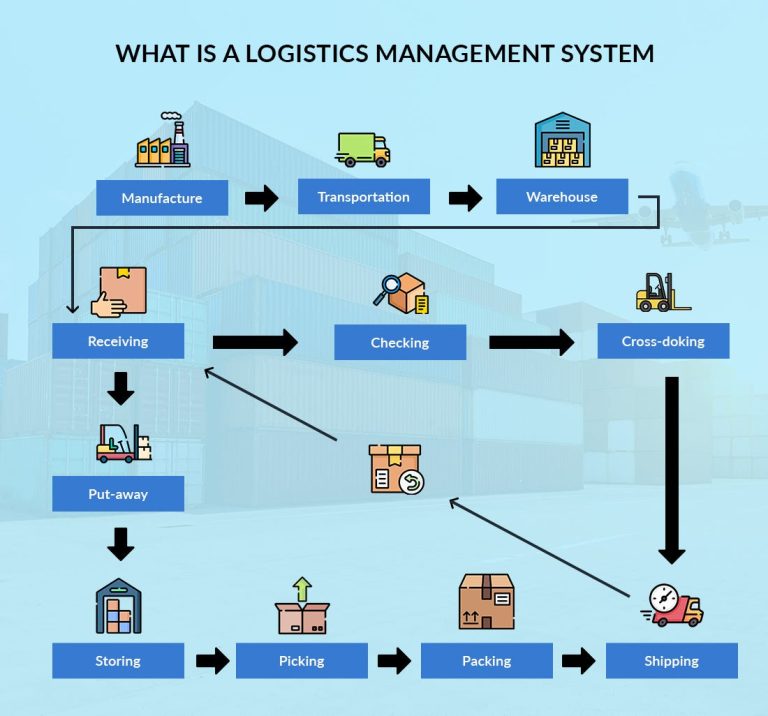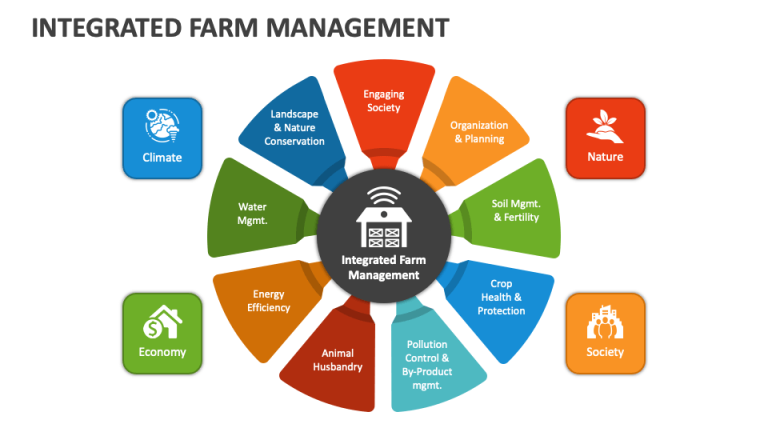Training Course on Electronic Records, Document, Archives, and Information Management

About The Course
Course Description
Good record and information management is extremely necessary as it fosters effective business operations and improves efficiency and transparency. The outreach of organizations, in terms of the services they offer, is vast and extends across the public. With this wide scope of operations and service offering, the amount of information collected, stored, and used from time to time is huge, and thus, the need for efficient and thorough record maintenance becomes imperative.
Information and records of past years may be required at any point in time and at short notice, and hence, maintaining the information and records in an easily retrievable form becomes necessary. Good record and information management not only improves efficiency in providing data for reference but also facilitates appropriate, objective decision-making. Records act as evidence of key decisions made regarding management, operations, services, etc. of organizations. Given the important information that such records hold, safeguarding these against predictable (corruption, theft, misuse of information, etc.) and unpredictable (fire, floods, etc.) threats is a focus of all organizations.
Security of records and information does not always rest with the source of storage and those concerned with these storage places/accounts/platforms. Those using this information at regular points in time should also maintain security. Therefore, different sector professionals dealing with such records need to be made more aware of and trained in best practices and standards of information security, and necessary policies and guidelines around record handling need to be put in place.
Record and information management is a planned, strategic initiative and cannot be carried out without proper planning and without specific, clear responsibilities assigned to each sector professional handling these records. Records are maintained in various formats: paper, video, audio, electronic, etc. These days, with the increase in digitization and modernization of the public services, electronic record management systems are gaining focus.
While there are a few aspects that need to be critically examined while setting up an electronic record management system, such as security against possible damage and threat, necessary system and technology upgrades, stringent approval systems, etc., training and upskilling of employees to efficiently operate these electronic record management systems is the topmost priority. Poor record management could lead to loss of trust of citizens in public administration, loss of administrative effort in retrieving data, alteration, and changes to authentic information without authorization, etc.
Information management becomes challenging when organizations need to also adhere to the freedom of information granted to citizens. Thus, record and information management by organizations needs to be simple, cost-effective, and efficient, and professionals need to receive relevant and focused training for these. This training course will empower you with an overall understanding and awareness of what constitutes ‘records’ and ‘information’ and the critical factors in effective record and information management.
Undertaking this course will enhance your ability to manage records and information more effectively and seamlessly and with least risk. The modules included in this course will enhance your experience and exposure to consider record and information management holistically and predict and safeguard the records of your organization against all possible risks and threats. Through the course, you will build your capability to handle data and information effectively and efficiently, regardless of the volume of information available. The best practices in record and information management that you will learn through this course can be replicated in any setting or organization that requires the storage of information for future reference. Thus, this enhances your skill set and competency to successfully undertake record and information management in any role, responsibility, domain, or sector. This course will prepare you to successfully undertake additional and important responsibilities with regard to record and information management, thus providing you ample opportunities to demonstrate your capabilities and skill for future growth and progression.
Course Objectives
Upon the successful completion of this Training Course on Electronic Records, Document, Archives, and Information Management, participants will be able to:
- Understand the principles and theories as well as best practices of record and information management.
- Predict potential threats to records and information management and devise strategies and steps to protect against these.
- Adequately and efficiently manage and maintain records and information.
- Confidently drive change from traditional to modern record and information management systems and implement electronic record and information management systems.
- Acquire skills and knowledge to work with technologies involved in electronic data maintenance.
- Adequately and successfully undertake more roles and responsibilities as part of natural growth and progression within an organization.
Training Methodology
Phoenix Center for Policy, Research and Training has developed this Training Course on Electronic Records, Document, Archives, and Information Management to be very practical, engaging concepts and best-practices in the industry. The course is designed to be highly collaborative, interactive, challenging and stimulating. It will be an instructor-led training and will be delivered using a balanced combination of lectures, presentations, and practical sessions, to ensure that participants learn end-to-end knowledge of EDMS applications. It will also comprise of discussions, web-based tutorials, role plays, group work and exploration of relevant issues. Our facilitators are seasoned industry experts with years of experience, working as professionals and trainers in these fields. All facilitation and course materials will be offered in English.
Who Should Attend?
This Training Course on Electronic Records, Document, Archives, and Information Management is suitable for, but not limited to Board Members and Senior Officials responsible for objective decision making and actions based on past records and information, Potential Investors, Record Managers and other public sector officials responsible for handling and managing records for future use, Human Resource Professionals and Learning and Development Trainers responsible for providing the necessary training for awareness as well as upskilling to manage shift to electronic record and information management systems, Policymakers, Auditors and Compliance Experts and any professional handling records or information as part of his/her job responsibilities.
COURSE OUTLINE
Module 1 – Overview of Record and Information Management
- Definition of a record
- Types and forms of records
- Identification of sensitive and non-sensitive information
- Balancing freedom of information and record and information management
Module 2 – Properties of Records
- Records are static.
- Records possess authority.
- Records are unique.
- Records are authentic.
Module 3 – Principles and Concepts of Record and Information Management
- Principle of respect des fonds
- The life-cycle concept
- The continuum concept.
- Principle of levels of arrangement and description
Module 4 – Focus Areas for Good Record Keeping
- Rule of law
- Accountability and governance
- Management of state resources
- Protection of entitlements
- Services for the public
- Foreign relation and international obligation
- Private sector investment
- Human rights
- Infrastructure and sustainability
- Knowledge management
- HR management
- Financial management
- Payroll control
Module 5 – Advantages of Effective Record and Information Management
- Efficiency and accountability
- Traceability and transparency
- Compliance with regulatory standards
- Easy, controlled, risk-free retrieval and disposal of records.
- Lower maintenance costs
- Better decision making by the management.
- Lower fraudulent or malpractice risks
Module 6 – Success Factors of Effective Record and Information Management
- Authority to access records
- Education and training
- Record maintenance software
- Compliance reporting
Module 7 – Success Factors for Establishing Electronic Record and Information Management Systems
- Technological readiness
- Top management/leadership support
- Training and involvement
- Resource availability
- System-related factors (allowances and budgets for upgrades)
- Work environment and culture
Module 8 – Challenges to Effective Record and Information Management
- Incomplete awareness among concerned personnel
- Lack of advanced technologies
- Lack of skill to manage records using advanced technologies.
- Budgetary constraints for training and technologies
Requirements: Participants should be reasonably proficient in English. Applicants must live up to Phoenix Center for Policy, Research and Training admission criteria.
NOTE
- Discounts: Organizations sponsoring Four Participants will have the 5th attend Free
- What is catered for by the Course Fees: Fees cater for all requirements for the training – Learning materials, Lunches, Teas, Snacks and Certification. All participants will additionally cater for their travel and accommodation expenses, visa application, insurance, and other personal expenses.
- Certificate Awarded: Participants are awarded Certificates of Participation at the end of the training.
- The program content shown here is for guidance purposes only. Our continuous course improvement process may lead to changes in topics and course structure.
- Approval of Course: Our Programs are NITA Participating organizations can therefore claim reimbursement on fees paid in accordance with NITA Rules.
How to Book: Simply send an email to the Training Officer on training@phoenixtrainingcenter.com and we will send you a registration form. We advise you to book early to avoid missing a seat to this training.
Or call us on +254720272325 / +254737566961
Payment Options: We provide 3 payment options, choose one for your convenience, and kindly make payments at least 5 days before the Training start date to reserve your seat:
- Groups of 5 People and Above – Cheque Payments to: Phoenix Center for Policy, Research and Training Limited should be paid in advance, 5 days to the training.
- Invoice: We can send a bill directly to you or your company.
- Deposit directly into Bank Account (Account details provided upon request)
Cancellation Policy
- Payment for all courses includes a registration fee, which is non-refundable, and equals 15% of the total sum of the course fee.
- Participants may cancel attendance 14 days or more prior to the training commencement date.
- No refunds will be made 14 days or less to the training commencement date. However, participants who are unable to attend may opt to attend a similar training course at a later date or send a substitute participant provided the participation criteria have been met.
Tailor Made Courses
This training course can also be customized for your institution upon request for a minimum of 5 participants. You can have it conducted at our Training Centre or at a convenient location.
For further inquiries, please contact us on Tel: +254720272325 / +254737566961 or Email training@phoenixtrainingcenter.com
Accommodation: Accommodation is arranged upon request and at extra cost. For reservations contact the Training Officer on Email: training@phoenixtrainingcenter.com or on Tel: +254720272325 / +254737566961
Start To Learn
5 Days
Certificate
Course Duration
Course Price
Training Calendar
2024 Training Calendar | |||
Start Date | End Date | Location | Register |
| 8-Apr-2024 | 12-Apr-2024 | Nairobi | https://t.ly/bVUBm |
| 22-Apr-2024 | 26-Apr-2024 | Nairobi | https://t.ly/bVUBm |
| 6-May-2024 | 10-May-2024 | Nairobi | https://t.ly/bVUBm |
| 20-May-2024 | 24-May-2024 | Nairobi | https://t.ly/bVUBm |
| 3-Jun-2024 | 7-Jun-2024 | Nairobi | https://t.ly/bVUBm |
| 17-Jun-2024 | 21-Jun-2024 | Nairobi | https://t.ly/bVUBm |
| 1-Jul-2024 | 5-Jul-2024 | Nairobi | https://t.ly/bVUBm |
| 15-Jul-2024 | 19-Jul-2024 | Nairobi | https://t.ly/bVUBm |
| 29-Jul-2024 | 2-Aug-2024 | Nairobi | https://t.ly/bVUBm |
| 12-Aug-2024 | 16-Aug-2024 | Nairobi | https://t.ly/bVUBm |
| 26-Aug-2024 | 30-Aug-2024 | Nairobi | https://t.ly/bVUBm |
| 9-Sep-2024 | 13-Sep-2024 | Nairobi | https://t.ly/bVUBm |
| 23-Sep-2024 | 27-Sep-2024 | Nairobi | https://t.ly/bVUBm |
| 7-Oct-2024 | 11-Oct-2024 | Nairobi | https://t.ly/bVUBm |
| 21-Oct-2024 | 25-Oct-2024 | Nairobi | https://t.ly/bVUBm |
| 4-Nov-2024 | 8-Nov-2024 | Nairobi | https://t.ly/bVUBm |
| 18-Nov-2024 | 22-Nov-2024 | Nairobi | https://t.ly/bVUBm |
| 2-Dec-2024 | 6-Dec-2024 | Nairobi | https://t.ly/bVUBm |
| 9-Dec-2024 | 13-Dec-2024 | Nairobi | https://t.ly/bVUBm |
| 16-Dec-2024 | 20-Dec-2024 | Nairobi | https://t.ly/bVUBm |





No comment yet, add your voice below!